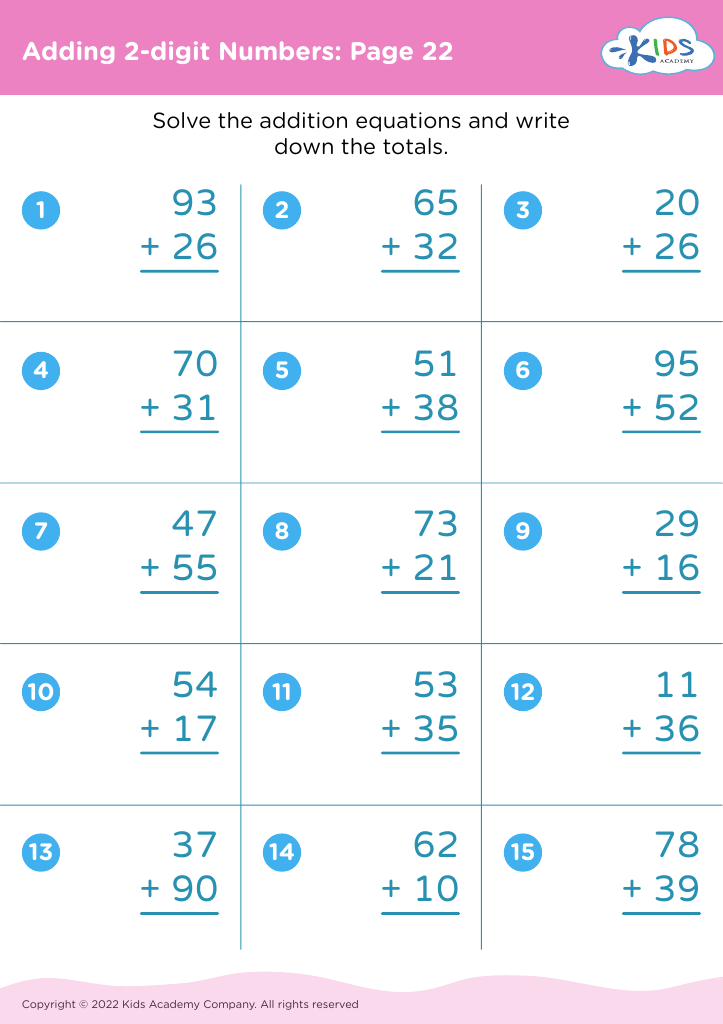Develop counting skills Addition Worksheets for 8-Year-Olds
5 filtered results
-
From - To
Developing counting skills is essential for 8-year-olds as they strengthen their foundational math abilities. Our Addition Worksheets are specifically designed to engage young learners and enhance their counting techniques through various fun activities. These printable worksheets will guide your child in practicing addition with visual aids, manipulating objects, and completing engaging exercises. As they solve problems, they will gain confidence in their counting, laying the groundwork for more advanced concepts. Use our resources to reinforce your child's learning at home, ensuring they become proficient in addition and develop a lifelong love for math. Start their counting journey today!
Counting and addition are foundational skills in mathematics that significantly influence an 8-year-old child’s academic trajectory and daily life. At this stage, children are not just learning to add numbers, but they are also developing critical thinking and problem-solving abilities. Mastering counting and addition lays the groundwork for more advanced mathematical concepts such as subtraction, multiplication, and division.
Parents and teachers should be invested in nurturing these skills because they contribute to a child’s confidence and competence in math. As children successfully grasp these concepts, they become more engaged and enthusiastic about learning. Counting skills also enhance cognitive development, as they encourage logical reasoning and pattern recognition.
Moreover, possessing strong counting and addition skills is crucial for real-life situations, such as managing money, measuring ingredients while cooking, or telling time. Fostering these skills at an early age can help prevent future learning gaps and difficulties in more complex math areas. Observing progress in these foundational skills can be rewarding for both educators and parents and can create opportunities for further learning and exploration in mathematics, leading to lifelong skills that extend beyond the classroom. Thus, prioritizing counting and addition is essential for holistic child development.










.jpg)


.jpg)












